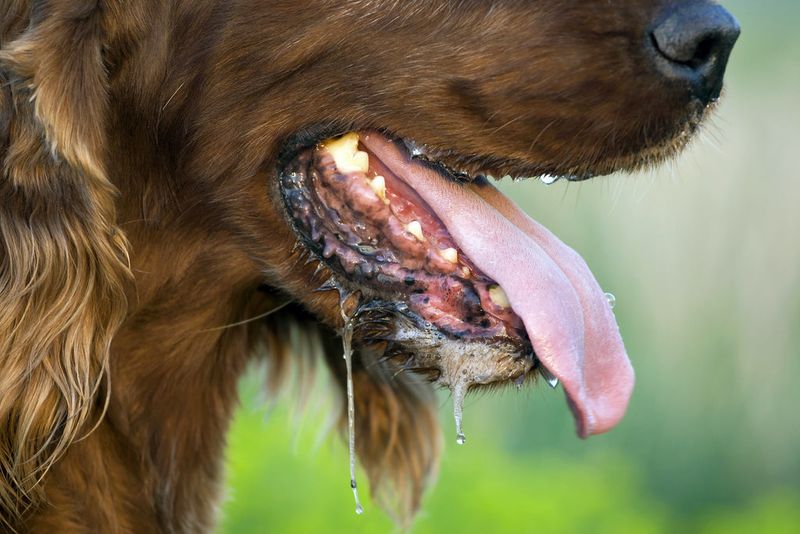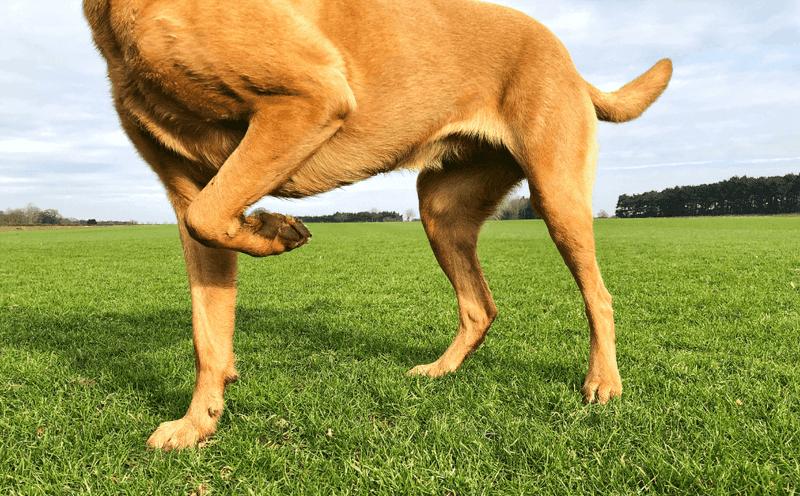Understanding your dog’s behavior is crucial to ensuring their well-being. Certain changes in behavior may indicate health issues, emotional distress, or other concerns that require attention. By recognizing these signs early, you can seek timely veterinary care and provide the best possible care for your furry friend. Here are 14 behavior changes that experts advise you should never overlook.
Sudden Aggression
When a normally placid pet suddenly exhibits aggression, it could be a sign of underlying pain or discomfort. This shift in demeanor may be startling, especially if the dog has always been friendly. Imagine your gentle Labrador suddenly growling at visitors. Such behavior change warrants immediate attention.
Vets emphasize that sudden aggression can stem from a variety of issues such as injury, disease, or anxiety. A thorough examination by a professional can reveal the cause. Addressing the root of this aggression is crucial for the safety of both the dog and those around it.
Excessive Licking
Obsessive licking can be more than just a quirky habit. It might indicate skin irritation or allergies. Consider the scene: a once playful terrier now spends hours licking its paws. Such persistent behavior may cause sores or infections if ignored.
Veterinarians point out that excessive licking often indicates stress, boredom, or underlying health problems. Identifying the exact cause can be complex, requiring observation and possibly allergy testing. Early intervention helps prevent complications, ensuring your pet remains comfortable and happy.
Appetite Loss
A sudden disinterest in food is concerning. Picture a once voracious eater, the family Beagle, now ignoring its favorite treats. Such loss of appetite can indicate dental issues, digestive problems, or more severe health conditions.
Vets stress the importance of monitoring eating habits closely. Appetite loss, especially if accompanied by weight loss or lethargy, should prompt a visit to the vet. Early diagnosis is vital in addressing potential health concerns and restoring your pet’s usual vigor.
Increased Sleep
While dogs love napping, excessive sleep can be a red flag. Imagine a lively Border Collie suddenly preferring to snooze all day instead of playing fetch. Such changes could signify health problems like hypothyroidism or other metabolic disorders.
Veterinarians highlight that prolonged fatigue can also point to emotional distress or aging. Pay attention to changes in sleep patterns, and consult a vet if your pet’s energy levels seem unusually low. Addressing the issue can rejuvenate your dog’s zest for life.
Sudden Weight Gain
Unexpected weight gain can affect your dog’s health significantly. Envision your fit Golden Retriever suddenly developing a noticeable pudge. Such rapid changes may result from overfeeding, hormonal imbalances, or lack of exercise.
Vets advise that unexplained weight gain should not be dismissed. It can lead to more serious issues like joint pain or diabetes. A balanced diet and regular exercise regimen, under veterinary supervision, are essential to maintaining optimal health.
Frequent Urination
A rapid increase in urination frequency may suggest underlying health issues. Picture your Bulldog, usually fine with a few walks a day, suddenly needing constant outdoor breaks. This behavior could be linked to urinary tract infections or kidney problems.
Veterinarians urge pet owners to monitor such changes closely, as they might indicate serious conditions needing prompt treatment. Timely intervention can prevent further complications and ensure your pet’s comfort.
Excessive Barking
While vocalizations are common, excessive barking can disrupt not just your home but also your dog’s well-being. Envision a usually quiet Poodle now barking incessantly at shadows. Such behavior requires investigation for potential triggers.
Veterinarians suggest that excessive barking might be due to anxiety, fear, or environmental changes. Identifying and addressing these factors can help calm your pet and restore peace to your home.
Isolation from Family
Dogs are social creatures, so withdrawal can signal distress. Imagine your affectionate Cocker Spaniel choosing solitude over family time. This change might indicate emotional issues or health problems like depression or cognitive decline.
Vets emphasize the need for careful attention when a dog starts avoiding social interactions. It could be a cry for help, necessitating behavioral consultation or medical evaluation to ensure their well-being.
Destructive Chewing
Destructive chewing can be more than a nuisance; it may signal deeper issues. Picture a Labrador, frequently praised for its temperament, now ruining furniture. Such behavior often stems from boredom, anxiety, or dental discomfort.
Veterinarians highlight the importance of mental stimulation and appropriate chew toys. Addressing the root cause through training or medical intervention can curb this behavior, safeguarding your furniture and your dog’s health.
Panting Excessively
Dogs pant to cool down, but excessive panting might indicate stress or heatstroke. Imagine a French Bulldog, known for its calm nature, suddenly panting indoors without exertion. Such signs should be taken seriously, especially in brachycephalic breeds.
Vets warn that continuous panting can hint at respiratory issues or heart disease. Ensuring a cool environment and seeking medical advice can help manage the situation effectively.
Limping Without Cause
A limp without an apparent cause is alarming. Visualize a robust Dalmatian suddenly favoring one leg during a routine walk. This can be an early sign of joint pain, arthritis, or hidden injuries.
Veterinarians recommend immediate examination if limping persists, to prevent exacerbating potential conditions. Timely intervention can alleviate pain and restore mobility, ensuring your pet remains active and healthy.
Sudden Fearfulness
Sudden fearfulness in routine situations is concerning. Picture a Siberian Husky, typically brave, now cowering from a vacuum cleaner. Such behavior can indicate past trauma, stress, or neurological issues.
Veterinarians stress the importance of observing these changes, as they might reveal deeper psychological issues. Professional evaluation can help address and manage fear, ensuring a comfortable environment for your pet.
Digestive Disturbances
Digestive problems can manifest as vomiting or diarrhea, alarming any dog owner. Picture a Boxer, known for its hearty appetite, now struggling with frequent stomach upsets.
Vets highlight that such disturbances could be dietary related or signal more severe conditions like infections. Monitoring diet and seeking veterinary consultation ensures the gastrointestinal health of your pet.
Excessive Grooming
Though more common in cats, excessive grooming in dogs is not to be overlooked. Imagine a dog, constantly grooming itself to the point of fur loss. This can be a response to skin irritation or psychological stress.
Veterinarians note that identifying the underlying cause is essential. Timely intervention can prevent self-inflicted injuries and ensure your pet’s coat and skin remain healthy.














